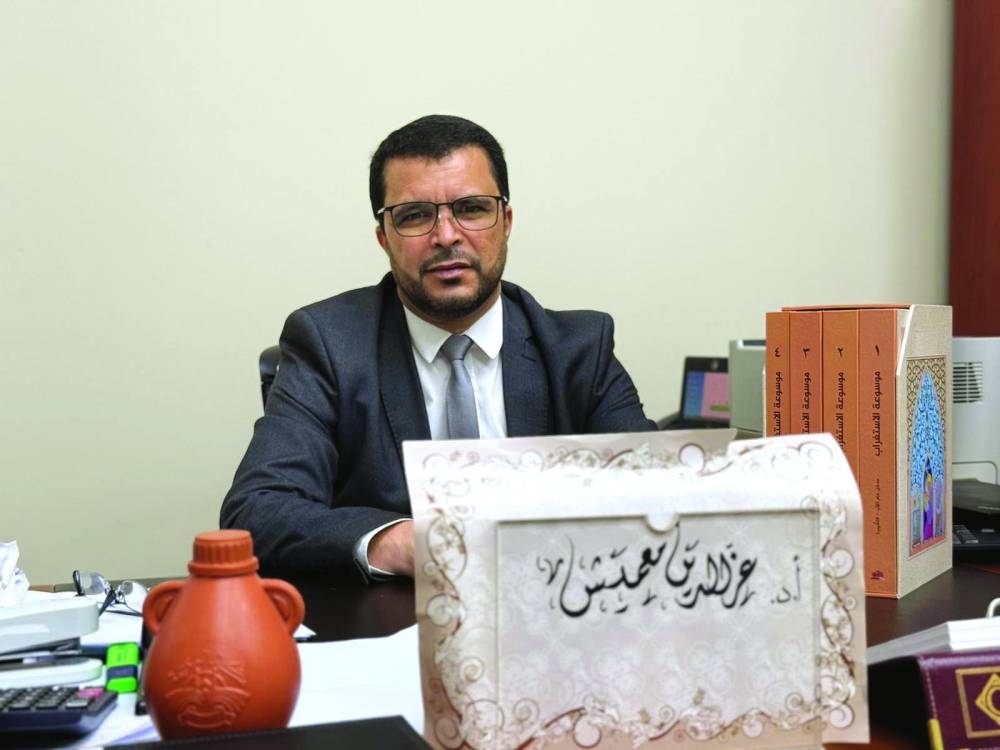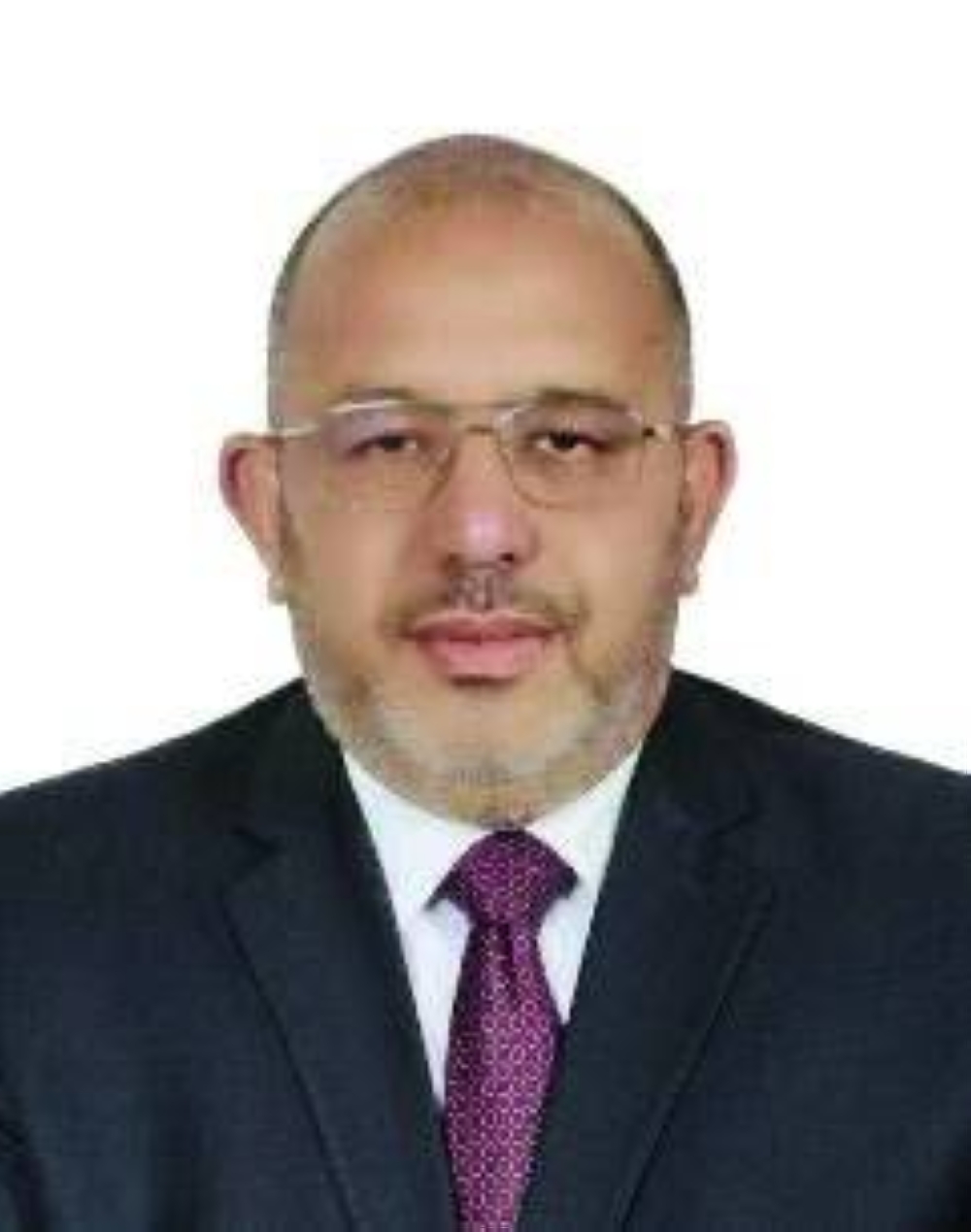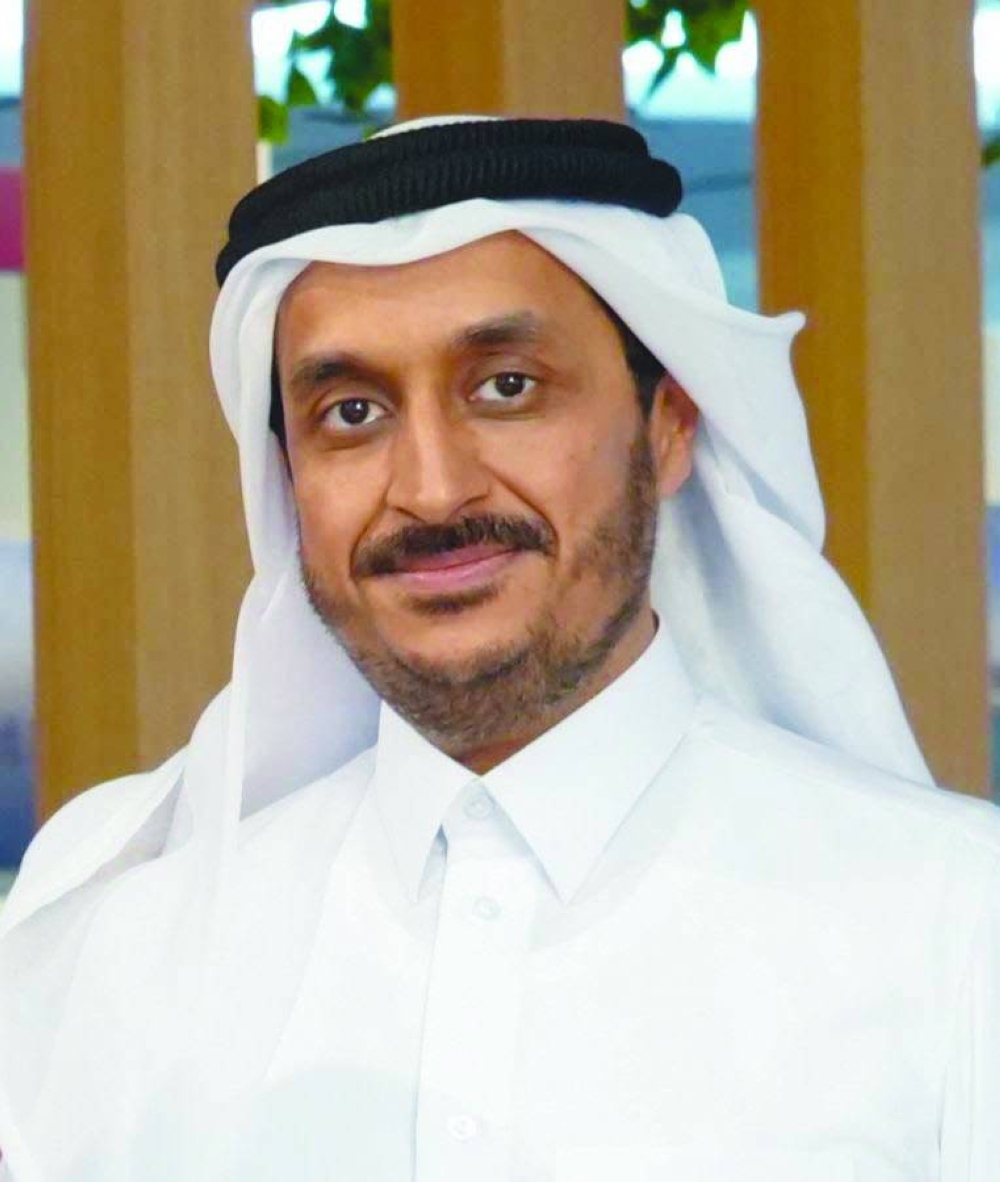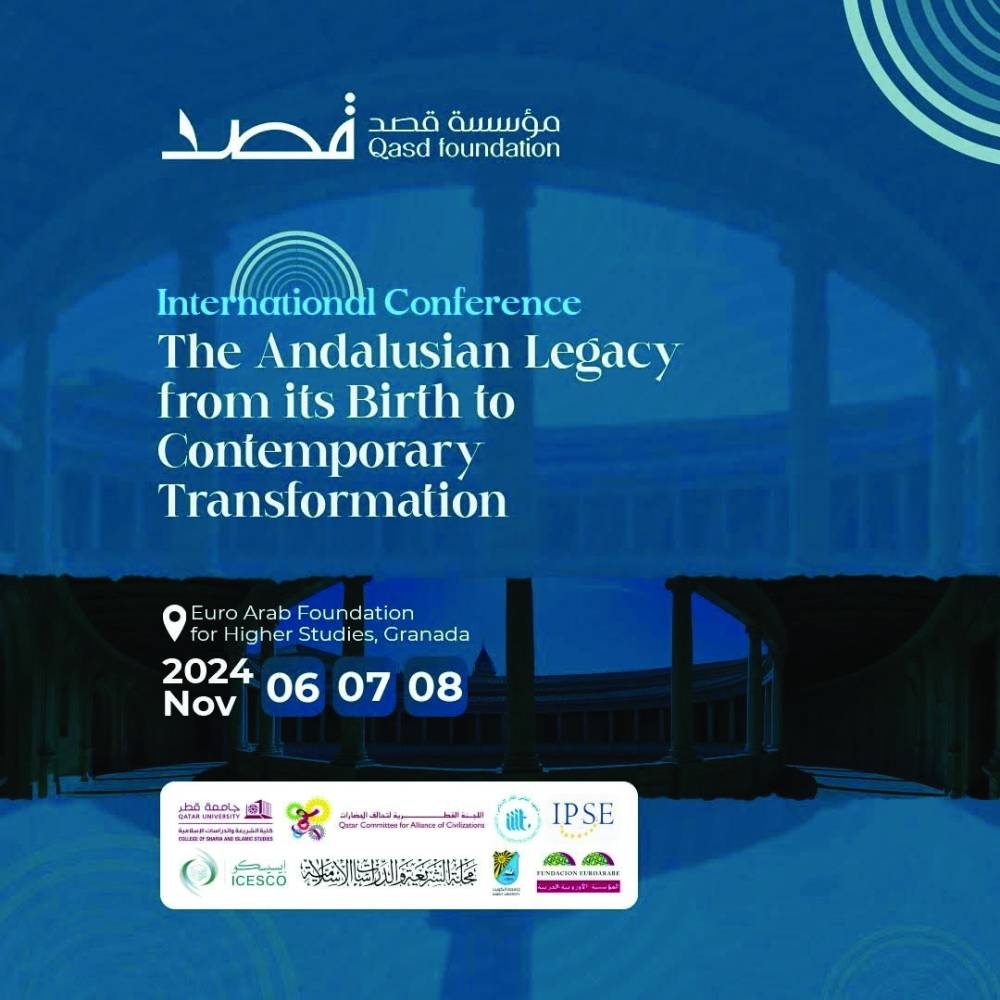The international conference on the legacy and civilisation of Al Andalus will highlight the need to strengthen the relations between the Islamic world and Spain positively.
Titled ‘The Andalusian Legacy and Civilisation: from its Birth to Contemporary Transformations’, the conference will be held from November 6-7 in Granada, Spain.
The event is organised by the Icesco Chair for the Alliance of Civilisations at the College of Sharia and Islamic Studies at Qatar University (QU) in co-operation with the Quality and Sustainable Development (QASD) Foundation, Euro Arab Foundation for Higher Studies, Qatar Committee for the Alliance of Civilisations at the Ministry of Foreign Affairs, the Islamic World Educational, Scientific and Cultural Organisation (Icesco), Journal of Sharia and Islamic Studies - Kuwait University, and the International Institute of Islamic Thought (IIT) and the Institute for Philosophical Studies - Europe, Brussels.
The conference will feature speakers from Qatar, Spain, Kuwait, Oman, the US, Canada, India, Kenya, Jordan, Morocco, Algeria, Iraq and Turkiye in various sessions.
“The legacy of Al Andalus represents the valuable, scientific, cultural, artistic and economic impact that Islamic civilisation left in Spain. Andalusia was an important cultural centre in the Middle Ages. Al Andalus left profound impacts in many areas. The conference is an attempt to contemplate the ways to revive this legacy and open the fronts of dialogues between the Arab-Muslim world and the West,” said head of the Icesco chair for Alliance of Civilisation and chairman of the Preparatory Committee of the Conference Prof Dr Ezzeddine Mamiche.
“The conference looks to strengthen the relations between the Islamic world and Spain in a positive aspect and explore new possibilities of co-operation. The conference also discusses the cultural and civilisational impact of Andalusian legacy and its role in building contemporary social togetherness. Also, it attempts to activate cultural diplomacy and contribute to further strengthening the Western-Islamic relations,” he said. The conference will have six sessions apart from the opening and closing sessions. “The sessions will discuss the birth and rise of Al Andalus, its role in cultural interaction and the ways to strengthen cultural dialogue between Europe and the Arab-Muslim world,” said Chair of the Scientific Committee of the Conference at QU Prof Dr Abdelkader Bekhouche.
“Al Andalus was a cradle of cultural prosperity and social harmony. For the modern Arab-Muslim world and Europe, there is much to learn in Al Andalus. The legacy of Al Andalus should be revived and the good practices should be followed,” said Conference Organising Committee chairman Jassim Salem adding that the conference aims to revive the historical reading of Muslim contributions that are consigned to oblivion.
“We hope the conference will develop new fronts of civilisational dialogue between the Muslim world and the West in line with the strategic vision of Qatar,” he said. “There is a need and scope to encourage positive trends and discuss the Muslim-Spanish relations and the influence of Islam on the social life, religion, languages, culture and academic renaissance of Europe and Spain,” he added.

Prof Dr Ezzeddine Mamiche

Prof Dr Abdelkader Bekhouche

Jassim Salem

